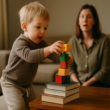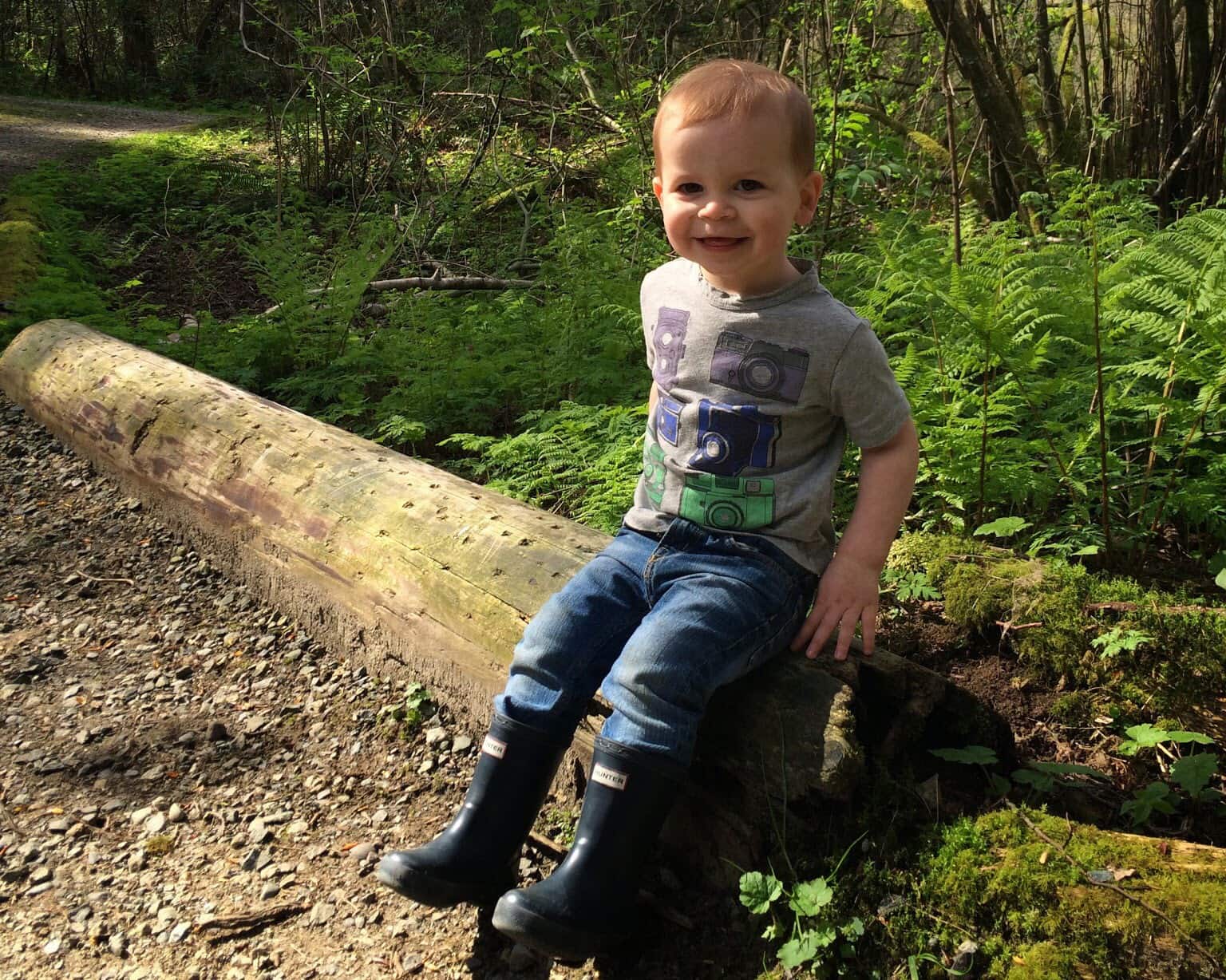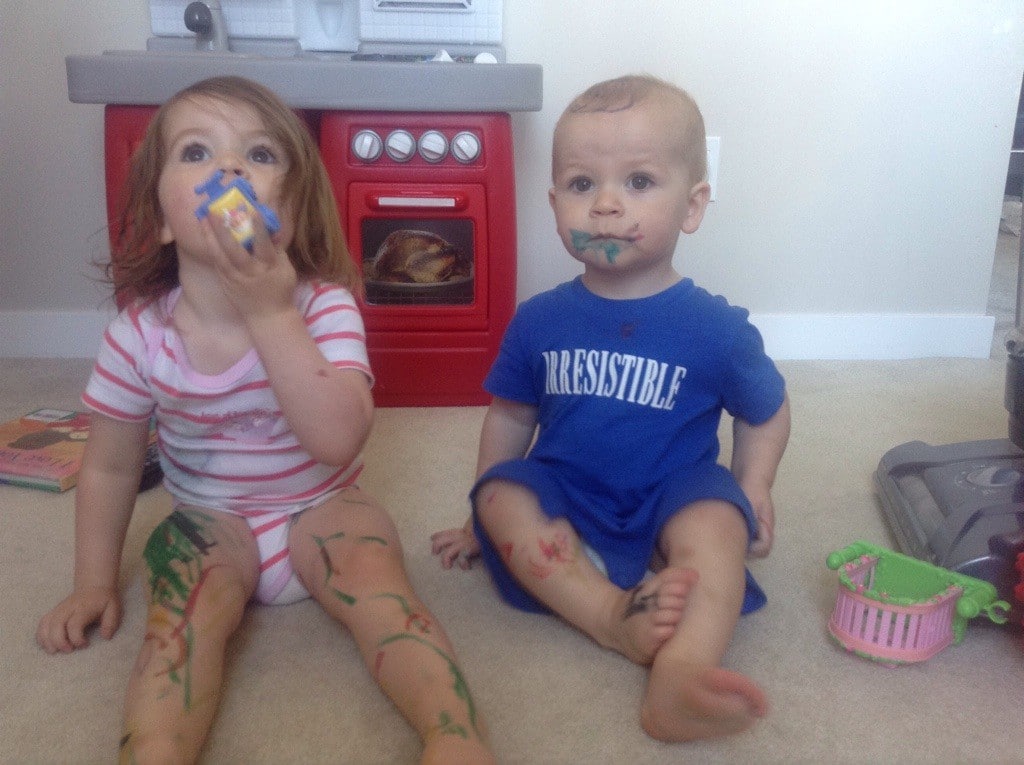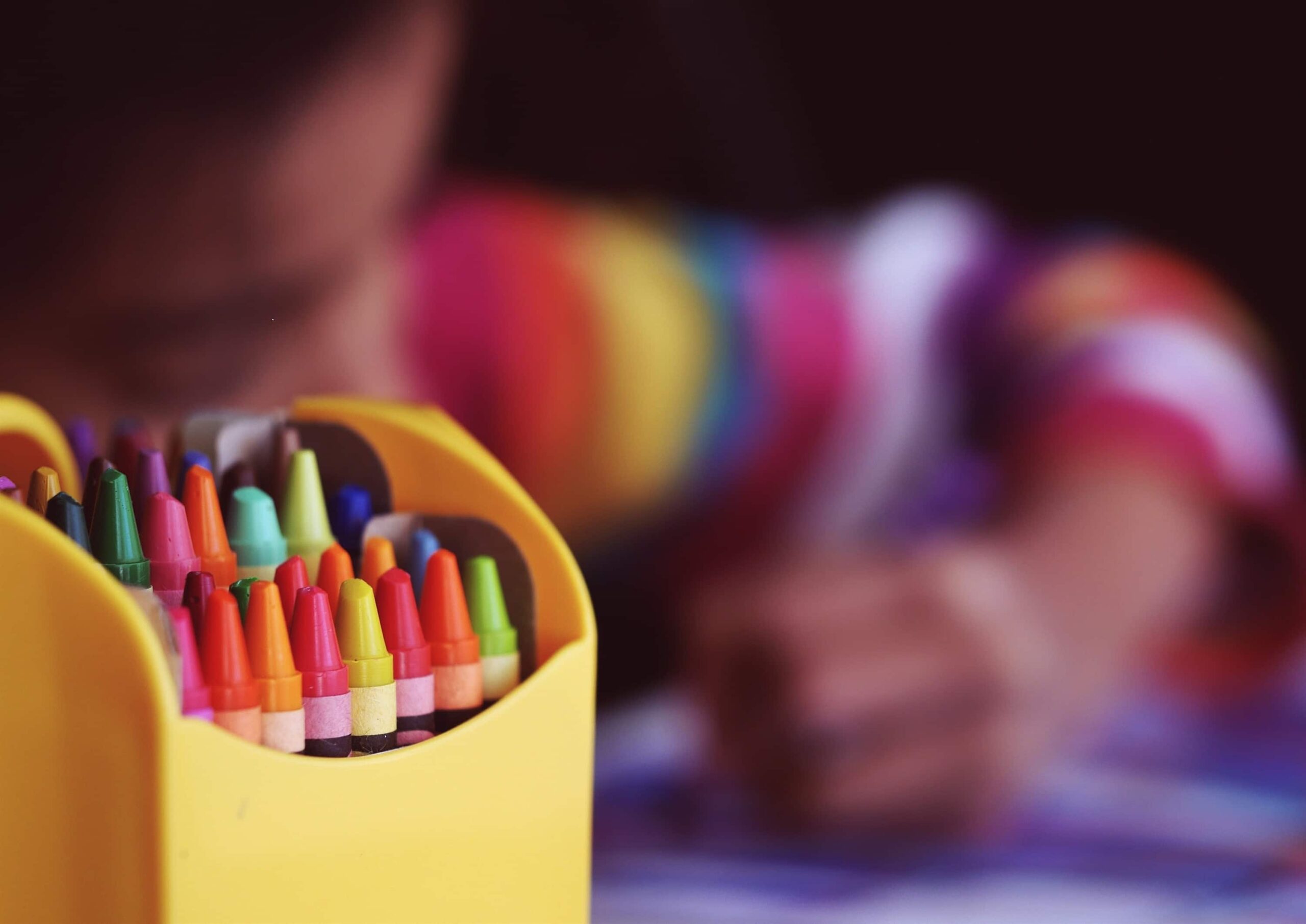How to build confidence in kids is one of the questions you’ve probably thought about a lot.
You haven’t?
Maybe it’s just me!
As a mom who only found her self-confidence at the ripe old age of thirty (jokes, thirty is NOT old!), I spend more time than most wondering how to help my kids feel confident in the people they are growing into.
You see, confidence plays a pivotal role in how kids see themselves, interact with others, and approach challenges.
Children with high self-esteem are more likely than other children to:
- Take Risks and Try New Things: Confident children are willing to step out of their comfort zones and explore new activities.
- Resist Peer Pressure: They are less likely to succumb to negative influences because they trust their own judgment and value their self-worth.
- Handle Setbacks: Confidence helps kids bounce back from failures and view them as opportunities for learning rather than as insurmountable obstacles.
- Build Healthy Relationships: Confident kids are better equipped to form and maintain positive relationships because they communicate more effectively and assertively.

Long-Term Benefits of Confidence
If you’ve ever wondered how to grow successful adults, confidence is part of the answer.
Here are some of the long-term benefits when you instil confidence in your kids.
“Self-confidence is the first requisite to great undertakings.”
– Samuel Johnson
Academic Success
Confident kids tend to do better in school because they aren’t afraid to ask questions, participate in class, and tackle difficult subjects. School can be hard, but confidence can help.
Career Achievement
If your child is confident in themselves and their abilities, they are more likely to pick a job they love and excel at. Confident adults are more likely to pursue their goals, take on leadership roles, and navigate career challenges.
Mental and Emotional Well-Being
High self-confidence is closely linked to better mental health. [look for study] Confident individuals are more resilient, have lower levels of anxiety and depression, and generally have a more positive outlook on life.
Healthy Lifestyle Choices
Have you ever noticed that you make better choices when you feel good about yourself? Well, confidence can influence lifestyle choices, helping your kids make better decisions and develop healthier habits.
Understanding Confidence
Confidence is your child’s belief in their own abilities and capacity to accomplish tasks and face challenges. It is the assurance that they can rely on themselves and trust their decisions. When kids are confident, they have a positive yet realistic perception of their abilities.

Defining Confidence in the Context of Child Development
Before you can learn how to instil confidence in your kids, it might be helpful to understand how and why confidence affects development. Think about the acronym PASS to help you remember the important points.
- P – Physical Confidence: This is the confidence in their physical abilities, whether it’s scoring a goal in soccer, dancing in a recital, or trying out a new playground trick. It empowers kids to embrace new challenges and grow their physical skills.
- A – Academic Confidence: This is all about a child’s belief in their academic skills. Confident students are the ones who actively participate in class and dive into their studies with enthusiasm.
- S – Social Confidence: This is about how comfortable a child feels in social settings. Confident kids are the ones who start conversations, make new friends easily, and express themselves clearly.
- S – Self-Efficacy: This is a child’s belief that they can succeed in specific situations or complete a task. It shapes how they tackle challenges and stick with things, even when the going gets tough.
Difference Between Confidence and Self-Esteem
Confidence and self-esteem overlap, but they aren’t the same thing.
Confidence: Self-confidence is all about believing in your ability to handle different tasks and situations. It varies across different areas of life, like social interactions, academics, or physical activities. For instance, your child might feel super confident solving math problems but might be shy about making new friends.
Self-Esteem: Self-esteem is a bigger idea that covers how a child feels about their worth and value as a person. It’s their overall self-view. High self-esteem means they see themselves positively, while low self-esteem can make them feel inadequate and full of self-doubt.
Confidence and self-esteem work together. When your child succeeds in specific areas and builds confidence in their abilities, their overall self-esteem improves. However, kids with high self-esteem are also more likely to try new things and face challenges because they feel good about themselves. Their positive self-view encourages them to trust their abilities and take risks.
Signs of Low Self-Esteem

- Avoiding challenges
- Negative self-talk
- Social withdrawal
- Difficulty accepting compliments
- Overly critical of themselves
- Perfectionism
- Reluctance to participate
- Sensitivity to criticism
- Physical symptoms (e.g., stomachaches, headaches)
- Comparing themselves to others
Building a Supportive Environment
Confidence comes from your kids knowing and loving themselves. But, in order for that confidence to develop, they need a nurturing home environment.
According to some research, your home environment lays the foundation for your child’s confidence. When kids feel safe, loved, and valued at home, they develop a strong sense of self-worth. Your home and the relationship you have with your kids help them feel secure, enabling them to explore, take risks, and learn from their experiences without fear of judgment or failure.
But what does a positive and supportive environment look like, and how can you create one in your home?
5 Top Tips for a Supportive Home

1. Show Unconditional Love
Make sure your child knows they are loved for who they are, not just for their achievements. Your child should feel accepted and worthy, no matter what they do. When you love and accept them, they can learn to feel confident in who they are.
2. Set Consistent Boundaries
Clear and consistent rules give your kids a sense of security. Children need to know what is expected of them and the consequences of their actions. Boundaries make it easier for your kids to choose “good” behavior. In turn, they can feel confident in their ability to listen and act accordingly.
3. Create a Routine
A predictable routine helps your kids feel safe and understand the structure of their day. Consistency provides stability. Transitions are tricky for kids. But when they know what to expect from their day, they can feel more confident and competent.
4. Encourage Independence
Allow your child to make choices and take on age-appropriate responsibilities. This fosters a sense of competence and autonomy. Whether they are two, ten, or seventeen, kids are desperate for independence.
5. Celebrate Efforts, Not Just Successes
Acknowledge and praise your child’s efforts and perseverance, not just their achievements. You want them to understand that trying and learning are valuable. Arguably, more valuable than the outcome. Confidence comes from trying, failing, and trying again.
Confident Communication
How you talk to your child can either boost their confidence or undermine it. Positive communication encourages your children to express themselves and feel valued.

Use Positive Language
Celebrate what your child does well and encourage their efforts. Your words have more power than you realize. Your words become your child’s inner critic, so be mindful of what you say AND how you say it.
Instead of saying, “You always leave your toys everywhere. Why can’t you be more organized?” try saying, “I’ve noticed how much you enjoy playing with your toys. Let’s work together to find a special place to keep them when you’re done playing so we can keep our space tidy.”
Be Supportive and Encouraging
Help your child understand that making mistakes is just part of learning. Offer them encouragement and support, especially when things get tough.
For instance, if they struggle with a school project, you might say, “It’s okay to make mistakes; that’s how we learn and get better. I’m proud of you for trying hard and not giving up. Let’s figure this out together.” This shows them that their efforts are valued and that you’re there to help them through challenges.
Communication is more than talking, though. For your kids to feel valued and confident in their self-worth, you need to master the art of listening.
Active Listening Techniques for Parents
Active listening shows your child that their thoughts and feelings are important. It helps build trust and strengthens your relationship. But most importantly, active listening shows your kids that their words have power. This helps them develop emotional intelligence, self-awareness, and self-confidence.
Active Listening Top Tips
Give Your Full Attention: When your child is speaking, stop what you are doing and make eye contact. Show that you are fully present in the conversation. Giving your child all of your focus also helps you notice non-verbal cues like body language.
Acknowledge Their Feelings: Reflect back what your child is saying to show you understand. Use phrases like “It sounds like you’re feeling…” or “I can see that you’re upset about…” You are a sounding board, there to help your child work through their feelings in a safe space.
Ask Open-Ended Questions: Encourage your child to share more about their thoughts and feelings. Instead of asking yes/no questions, use open-ended questions like “What do you think about…?” or “How did that make you feel?”
Avoid Interrupting: Let your child finish speaking before you respond. This shows respect and allows them to express themselves fully. Every time you interrupt your child, you send the message that what they’re saying isn’t important.
Offer Empathy and Support: Show empathy by validating your child’s feelings. Let them know it’s okay to feel what they are feeling and that you are there to support them. Learning how to regulate their emotions is a simple way to help your child feel more confident in themselves.
How to Build Confidence in Kids: Practical Tips

Okay, so we’ve looked at why confidence is important. Now, let’s put that into action with practical tips.
Set Realistic Goals
Helping your kids set goals they can actually achieve gives them a huge confidence boost. When they experience success (in big and small ways), it reinforces their belief in their abilities.
- Start Small: Begin with small, manageable goals that your child can easily achieve. For example, if your child wants to improve in reading, setting aside 15 minutes each night to read is an easy first step.
- Break It Down: Divide larger goals into smaller, more attainable steps. This will make the process less overwhelming and let your child experience small wins along the way.
- Be Specific: Ensure that goals are clear and specific. Instead of saying, “Do better in math,” set a goal like, “Complete all math homework on time for a week.”
Celebrate Small Successes
Recognize and celebrate your child’s achievements, no matter how small. This encourages them to keep at it and builds their confidence.
- Verbal Praise: Your praise should be specific, and you should always try to include their effort and progress in that praise. For example, “Great job on finishing your homework every day this week! You worked really hard to stay on track.”
- Rewards: Rewards aren’t always the answer, but they can ‘sweeten the pot’ if you will. Rewards can be simple, like a favorite treat or extra screentime.
- Share Success: Positive reinforcement is extremely powerful when it comes to perpetuating behavior and developing self-confidence. Share your child’s success with the rest of the family to reinforce the positive experience and boost your child’s self-esteem.
Encourage Independence
When you encourage your kids to take on responsibilities suitable for their age, it helps build their confidence, independence, and sense of autonomy.
- Chores: Age-appropriate chores, like setting the table or cleaning their room can be a real winner. Not only do they give your kids a sense of accomplishment and responsibility, but they also learn life skills.
- Self-Care: Even little kids can learn to take care of themselves by dressing, brushing their teeth, and packing their school bag. Putting good self-care routines in place is even more important as your kids move into the teen years.
- Problem-Solving: Encourage your kids to solve problems on their own. For example, If a toy breaks, guide them through fixing it rather than doing it for them.
Let Your Kids Make Choices and Learn from Mistakes
Letting your kids make choices helps them feel in control and builds decision-making skills.
- Offer Options: Let your kids make everyday decisions, such as picking their outfits or choosing what to have for lunch. This empowers them and builds trust and confidence in their decision-making abilities.
- Learning from Mistakes: Making mistakes is how people learn. Mistakes allow your kids to experience the consequences of their choices. If they forget their homework, discuss what they can do differently next time rather than scolding them. This teaches them how to be resilient and problem-solve.
When you start learning how to build confidence in kids, it can feel overwhelming. But take a breath. You’re probably doing lots of this stuff already!
Self-Esteem Activities for Kids
Now for the good stuff! Practical activities to build self-confidence in a child.

Confidence-Building Activities for Young Kids
1. Create a “Me” Collage
Help your child make a collage that highlights their strengths, interests, and favorite things.
- Gather magazines, photos, stickers, and other craft supplies.
- Encourage your child to cut out or draw pictures that represent what they love and what they’re good at.
- Paste the images onto a large piece of paper or poster board.
2. Cook Together
Get into the kitchen with your kids. Not only will they learn some real-world skills, but there is also more chance they will eat the meal!
- Pick a recipe that won’t make you lose your mind, like cookies or sandwiches.
- Let your child stir, measure, decorate, and make a mess.
- Share the finished product with the family (and maybe have some backup options on hand!).
3. Plant a Garden
Start a small garden or plant seeds in pots with your child. This is an easy way to practice working toward a goal. You could grow herbs or veggies that you can eventually pick and use in a meal.
- Choose easy-to-grow plants like herbs, flowers, or vegetables.
- Teach your child how to plant seeds, water them, and care for the plants as they grow.
- Keep track of the plant’s growth and celebrate milestones, like the first sprout or bloom.
Confidence-Building Activities for Teens

1. Volunteering
Volunteering can help your teen learn more about themselves and develop empathy.
- Find local opportunities like animal shelters, food banks, or community clean-up events.
- Help them choose a cause they are passionate about.
- Support them in committing regular time to volunteer.
2. Learning a New Skill
Encourage your teen to challenge themselves and learn something new. It’s important for them to do hard things and learn to stick with something.
- Help them figure out where their interests lie.
- Set realistic goals and celebrate milestones as they improve.
- Encourage your teen to keep at it and practice, even when things get hard.
3. Part-Time Job or Internship
The teen years are full of big changes, and your teen is probably looking for more adult experiences. Part-time jobs or internships can help them gain work experience and foster a sense of responsibility and confidence.
- Help them find opportunities that align with their interests.
- Support them in the application and interview process, which can be daunting.
Parental Role in Confidence Building
Your behavior has more of an impact on your kids than you realize. That might sound daunting, but it also means that you can show your kids what confidence looks like.
Modeling Confident Behavior for Your Child
Children are incredibly perceptive and observant. So, it’s no surprise that one of the easiest ways for you to instil confidence in your kids is to show them what it looks like.
- Show Resilience: Let your child see you facing challenges with a positive attitude. For example, if you make a mistake, handle it calmly and demonstrate problem-solving skills.
- Take Risks: Be open about trying new things and stepping out of your comfort zone. Share your experiences and how you deal with uncertainties and failures.
- Practice Self-Care: Prioritize your well-being and show your child that taking care of yourself is important. This includes managing stress, exercising, and maintaining a healthy work-life balance.
Teaching Kids to Use Positive Self-Talk

Positive self-talk, which focuses on strengths and abilities, can help your kids build resilience and self-confidence. Teaching your child to replace negative thoughts with positive affirmations can make a big difference in how they see themselves.
Start by helping your child recognize when they are engaging in negative self-talk. For instance, if they say, “I’m not good at this,” guide them to reframe it positively. Using ‘Yet’ is a great trick. Instead of “I’m not good at this,” try, “I’m not good at this yet.”
Positive affirmations can also go a long way to helping your kids create a positive and confident self-image.
Here are some positive affirmations you can try with your kids.
- “I am capable and strong.”
- “I can handle anything that comes my way.”
- “I am proud of my efforts.”
- “I am loved and valued.”
- “I can learn from my mistakes.”
- “I am unique and special.”
Building Confidence in Kids
Building confidence in your kids is a vital part of your parenting journey, and it sets the foundation for their future success and happiness.
But remember, every child is unique, and confidence-building is a continuous journey. Celebrate their successes, support them through their struggles, and watch them flourish as they learn to love themselves.
We love hearing from you! So, let us know if you have any confidence-building tips and tricks.











